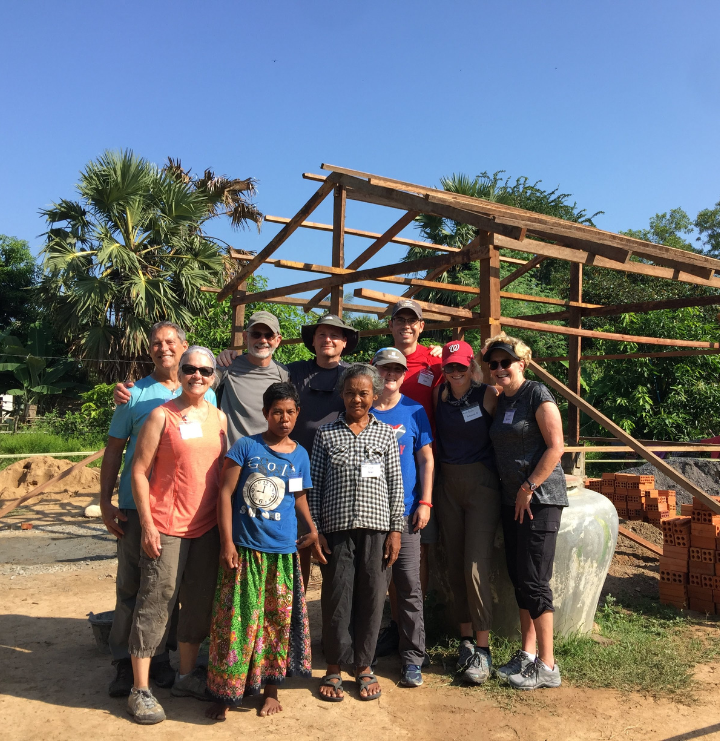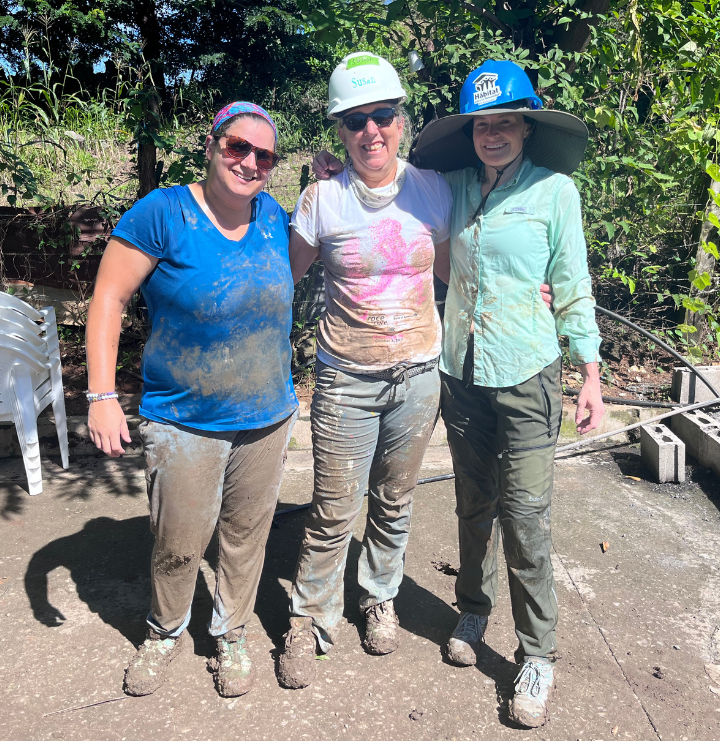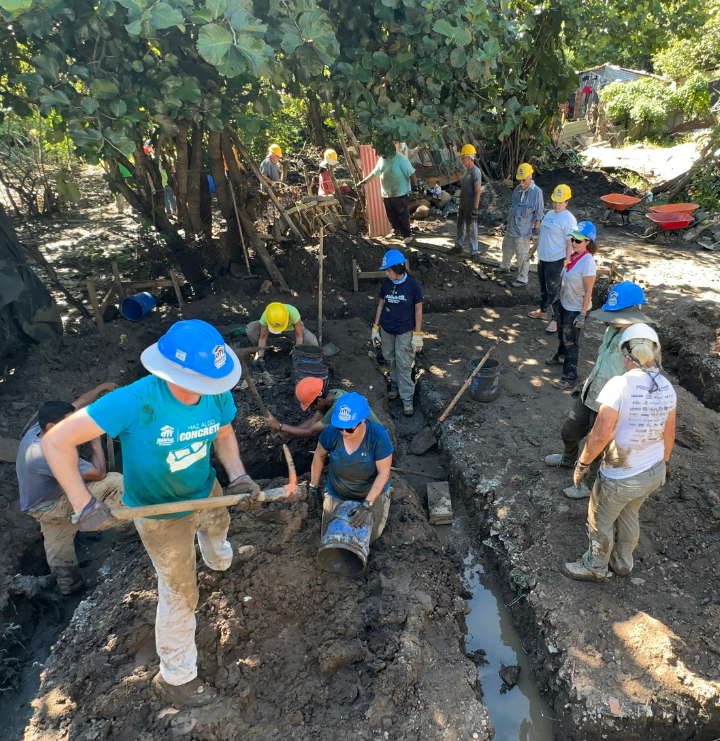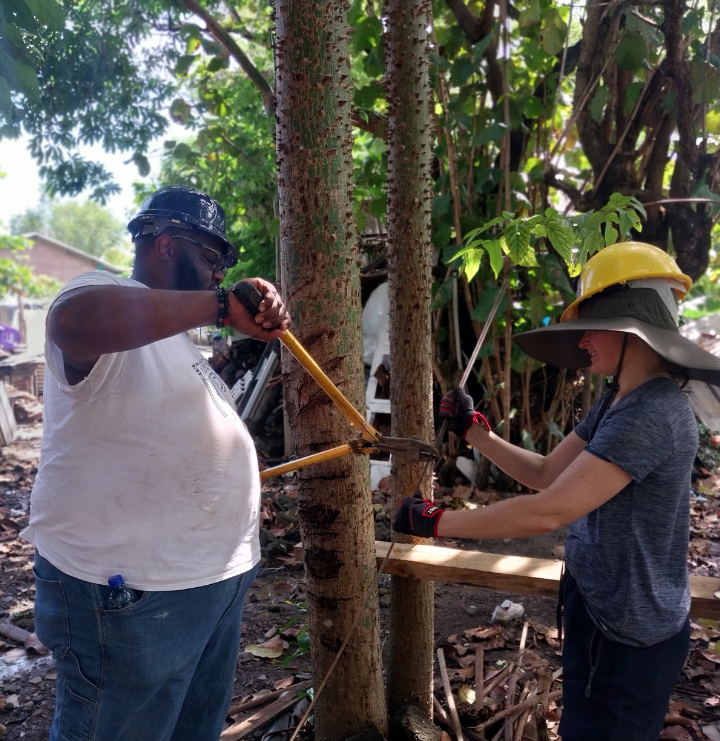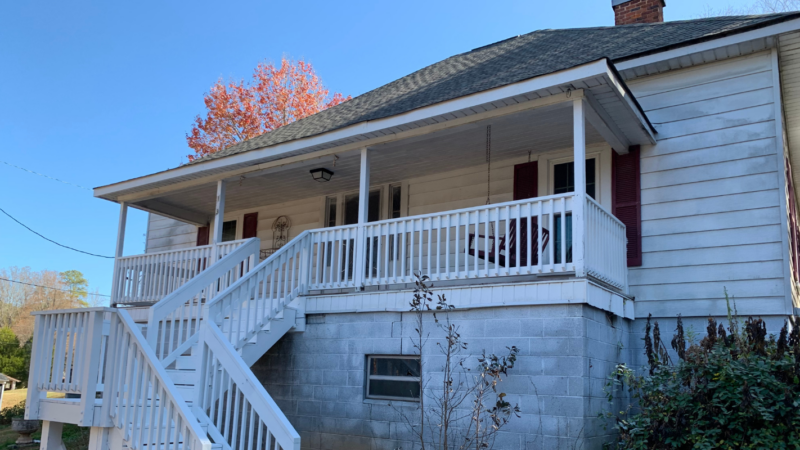March 27, 2024 | Alexa Johnson
This was my second international trip with Habitat. In 2019 I was lucky enough to join Habitat Charlotte Region in Cambodia (photo, left). I knew going into this trip, just as I had my first, that it would be a life-altering experience, the kind of trip with the power to shake you to your core and leave a lasting imprint. But unlike last time, I was now privy to the fact that said imprint would come, in large part, from the other passengers in that van. Within minutes of our three-hour journey to San Miguel that morning, my back was to the window and I was deep in conversation with my friend Susan. We hadn’t seen each other since Cambodia so we spent most of the first leg of the trip catching each other up on all the unexpected twists and turns our lives had taken, as lives are wont to do, since 2019. As someone who loathes small talk, I find the instant intimacy of these trips to be a salve of sorts for the soul. Something about knowing you’re about to spend the next week getting back in that very van as the dirtiest and sweatiest version of yourself tends to fast track that in my experience.
“Which volcano is that?” Bex, our team leader, asked the Habitat El Salvador team with us in the van. I turned to look out the window at what she was pointing toward, that delicious, childlike feeling of awe rising in me like the majestic mountain in the distance. I have a lazy tendency to unfairly credit the mere act of travel with being the singular source of that warm, lava-like rush of wonder, as if ink left by a rubber stamp on the page of a government-issued booklet could possibly hold that kind of power. When international travel all but ceased several months after returning home from that Habitat build in Cambodia, it didn’t take me long to remember that the stage of life we most closely associate with wonder is, at least in my case, the one that involved the fewest passport stamps: childhood.
In the early days of those four years of dormancy between Habitat trips to Cambodia and El Salvador, I remembered a practice I picked up during the long van rides between where we were staying in Battambang, Cambodia’s second largest city, and our build site of writing down things I observed out the window. Rice drying on blue tarps in front of homes. Dogs riding on top of rice sacks piled high in the back of a truck bed. People texting while riding four-or-more deep on the back of motor bikes. Small children sleeping on the floor of a market. It didn’t matter where I was necessarily, what mattered was noticing the wonder and humanity within each of those tiny micro-moments of life passing by outside the window.
In those dark, early days of the pandemic I spent a lot of time scrolling through notes and photos of my time with Habitat in Cambodia on my phone, a window in and of itself, wondering and worrying about the people I’d met there just a few months earlier. How was the family we’d worked with faring? Was their small sky-blue home—the color they picked out for their new one-room structure made of brick, concrete and drywall with the metal roof we’d spent a week building with them in the sweltering heat—protecting them? One day I pulled out a notebook and started jotting down my observations for a few minutes each morning. It became a ritual that felt more like a magic trick at the time, instantly pulling me out of my head and back into the world I felt so cut off from, just as it had on those dusty rural roads outside Battambang.

